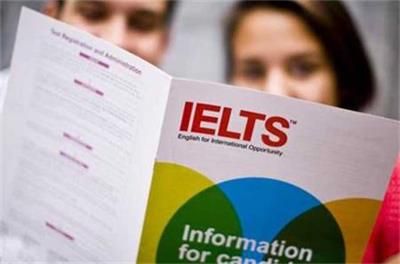留学生必看:雅思小作文中时间介词的正确使用指南
嘿,大家好!我是你们的小编,今天咱们来聊一聊一个超级实用的话题——雅思小作文中时间介词的正确使用。相信很多小伙伴在准备雅思写作时都遇到过这样的困扰:明明语法结构没问题,为什么分数总是提不上去?很多时候,问题就出在这些小小的介词上。别担心,今天我们就来一起解决这个难题,让你的小作文更加地道、流畅。
1. 时间介词的基本概念
首先,我们得了解一下时间介词是什么。简单来说,时间介词就是用来表示动作发生的时间关系的词。比如,“in”、“on”、“at”、“by”、“since”、“for”等等。这些词虽然简单,但在雅思写作中却扮演着非常重要的角色。用对了,能让你的句子更加精准;用错了,可能会导致意思模糊,甚至误解。
2. “in” 的用法
“in” 是我们最常用的时间介词之一,通常用来表示较长的时间段。比如:
- in the morning / afternoon / evening(在早上/下午/晚上)
- in the summer / winter / spring / fall(在夏天/冬天/春天/秋天)
- in 2023(在2023年)
举个例子吧,假如你要描述去年夏天的一次旅行,可以说:“I went on a trip to Paris in the summer of 2022.” 这里用“in”是因为“summer”是一个较长的时间段。
3. “on” 的用法
“on” 主要用来表示具体的某一天或某一天的某个时间段。比如:
- on Monday / Tuesday / Wednesday(在周一/周二/周三)
- on June 1st, 2023(在2023年6月1日)
- on Christmas Day(在圣诞节当天)
比如说,你要描述上周五的一场考试,可以说:“I had an important exam on Friday last week.” 这里用“on”是因为“Friday”是一个具体的日子。
4. “at” 的用法
“at” 通常用来表示具体的时刻或特定的时间点。比如:
- at 3 o'clock(在三点钟)
- at midnight / noon(在午夜/中午)
- at the beginning / end of the day(在一天的开始/结束)
举个例子,假如你要描述今天早上的一次会议,可以说:“The meeting started at 9:00 AM this morning.” 这里用“at”是因为“9:00 AM”是一个具体的时刻。
5. “by” 的用法
“by” 用来表示动作完成的截止时间。比如:
- by next week(到下周为止)
- by the end of the month(到月底为止)
- by 2025(到2025年为止)
比如说,你要描述一个项目的时间节点,可以说:“We need to finish the project by the end of December.” 这里用“by”是因为“the end of December”是一个截止时间点。
6. “since” 和 “for” 的用法
“since” 和 “for” 都用来表示持续的时间,但它们的用法有所不同。
“since” 表示从某个时间点开始一直到现在,强调动作的起点。比如:
- since 2020(从2020年开始)
- since last year(从去年开始)
- since I was a child(从小的时候开始)
举个例子,假如你要描述自己学习英语的时间,可以说:“I have been learning English since 2018.” 这里用“since”是因为2018年是你开始学习英语的时间点。
而“for” 则表示持续了一段时间,强调动作的持续性。比如:
- for 5 years(持续了5年)
- for a long time(持续了很长时间)
- for several months(持续了几个月)
比如说,你要描述自己在一个地方居住的时间,可以说:“I have lived in London for 3 years.” 这里用“for”是因为3年是你在伦敦居住的持续时间。
7. 常见的错误用法及修正
在实际写作中,很多同学会犯一些常见的错误。下面是一些典型的错误用法及其修正:
- 错误:I will meet you on 3 o'clock.(我将在3点钟见你。)
正确:I will meet you at 3 o'clock.(我将在3点钟见你。) - 错误:I have been studying here since 3 years.(我在这里学习了3年。)
正确:I have been studying here for 3 years.(我在这里学习了3年。) - 错误:She will arrive in Monday.(她将在周一到达。)
正确:She will arrive on Monday.(她将在周一到达。)
通过这些例子,我们可以看到,介词的选择直接影响句子的意思和准确性。所以,平时多加练习,积累经验,才能在考试中游刃有余。
8. 实战演练:例文分析
光说不练假把式,咱们来实战演练一下。下面是一篇雅思小作文的例子,我们一起看看其中的时间介词用得是否准确。
题目:Describe a memorable event that happened during your childhood.
范文:
One of the most memorable events that happened during my childhood was my first visit to the beach. It took place on a sunny day in the summer of 2005. My parents decided to take me and my younger brother on a short trip to the seaside. We arrived at the beach early in the morning and spent the entire day there. We built sandcastles, played in the water, and collected seashells. By the end of the day, we were all exhausted but very happy. This experience has stayed with me ever since, and it remains one of my fondest memories from childhood.
在这篇文章中,时间介词的使用都非常准确:
- “on a sunny day in the summer of 2005” 中的 “on” 和 “in” 都用得恰到好处。
- “early in the morning” 中的 “in” 也用得很恰当。
- “By the end of the day” 中的 “by” 表示截止时间,用得也很准确。
- “ever since” 中的 “since” 表示从某个时间点开始一直到现在,也非常合适。
通过这篇范文,我们可以看到,合理使用时间介词能让文章更加流畅、自然。
9. 小贴士:如何提高时间介词的使用技巧
最后,给大家分享几个提高时间介词使用技巧的小贴士:
- 多读多背: 多读一些英文原版书籍、文章,尤其是那些高质量的雅思范文,积累语感。
- 练习写作: 平时多练习写作,特别是针对时间介词的专项练习,可以找一些相关的题目进行练习。
- 查词典: 不确定某个介词的用法时,可以查一查权威的英文字典,比如《牛津高阶英汉双解词典》。
- 请教老师或同学: 有时候,老师或同学的一句话就能让你豁然开朗,不要害羞,多向他们请教。
希望这些建议能帮助你在雅思写作中更加自信地使用时间介词,写出更加地道、流畅的文章。
好了,今天的分享就到这里啦!如果你有任何疑问或想要了解更多关于雅思写作的内容,欢迎留言告诉我哦。祝大家雅思写作顺利,早日拿到理想的成绩!






